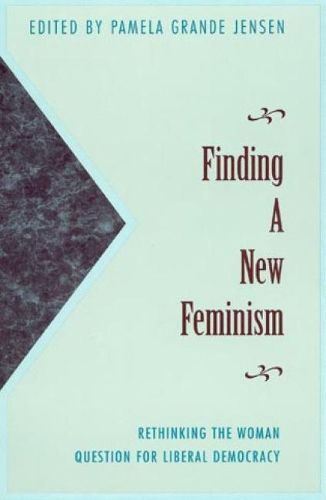Readings Newsletter
Become a Readings Member to make your shopping experience even easier.
Sign in or sign up for free!
You’re not far away from qualifying for FREE standard shipping within Australia
You’ve qualified for FREE standard shipping within Australia
The cart is loading…






This collection of essays by known scholars of political theory contends that contemporary ideas of feminism have reached a theoretical impasse because they are unable to reconcile tensions between principles such as equality and difference. Finding a New Feminism places modern concepts of feminism within the historical context of political thought and uses feminism as a lens through which to examine the strengths and weaknesses of liberal democracy, both in practice and in theory. By reconsidering classic works of literature, philosophy and political theory, the authors identify certain deficiencies of liberal democracy but do not call for its complete abandonment. Instead, they present a new theory of feminism that fosters the reconciliation of conflicting and competing principles, as well as the private and public realms of women’s lives. This should be valuable reading for students and scholars of political and feminist theory.
$9.00 standard shipping within Australia
FREE standard shipping within Australia for orders over $100.00
Express & International shipping calculated at checkout
This collection of essays by known scholars of political theory contends that contemporary ideas of feminism have reached a theoretical impasse because they are unable to reconcile tensions between principles such as equality and difference. Finding a New Feminism places modern concepts of feminism within the historical context of political thought and uses feminism as a lens through which to examine the strengths and weaknesses of liberal democracy, both in practice and in theory. By reconsidering classic works of literature, philosophy and political theory, the authors identify certain deficiencies of liberal democracy but do not call for its complete abandonment. Instead, they present a new theory of feminism that fosters the reconciliation of conflicting and competing principles, as well as the private and public realms of women’s lives. This should be valuable reading for students and scholars of political and feminist theory.